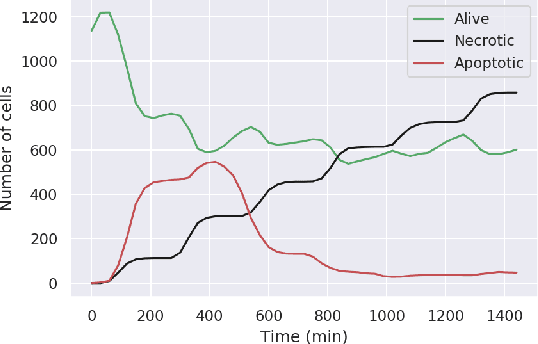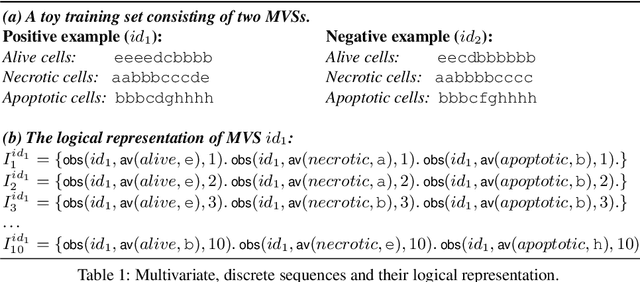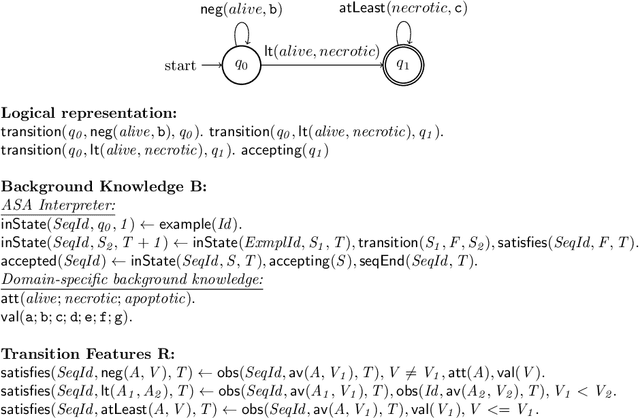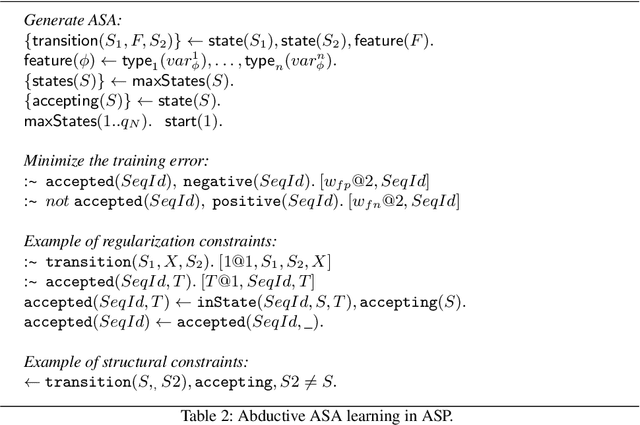Learning Automata-Based Complex Event Patterns in Answer Set Programming
Paper and Code
Aug 31, 2022



Complex Event Recognition and Forecasting (CER/F) techniques attempt to detect, or even forecast ahead of time, event occurrences in streaming input using predefined event patterns. Such patterns are not always known in advance, or they frequently change over time, making machine learning techniques, capable of extracting such patterns from data, highly desirable in CER/F. Since many CER/F systems use symbolic automata to represent such patterns, we propose a family of such automata where the transition-enabling conditions are defined by Answer Set Programming (ASP) rules, and which, thanks to the strong connections of ASP to symbolic learning, are directly learnable from data. We present such a learning approach in ASP and an incremental version thereof that trades optimality for efficiency and is capable to scale to large datasets. We evaluate our approach on two CER datasets and compare it to state-of-the-art automata learning techniques, demonstrating empirically a superior performance, both in terms of predictive accuracy and scalability.
 Add to Chrome
Add to Chrome Add to Firefox
Add to Firefox Add to Edge
Add to Edge